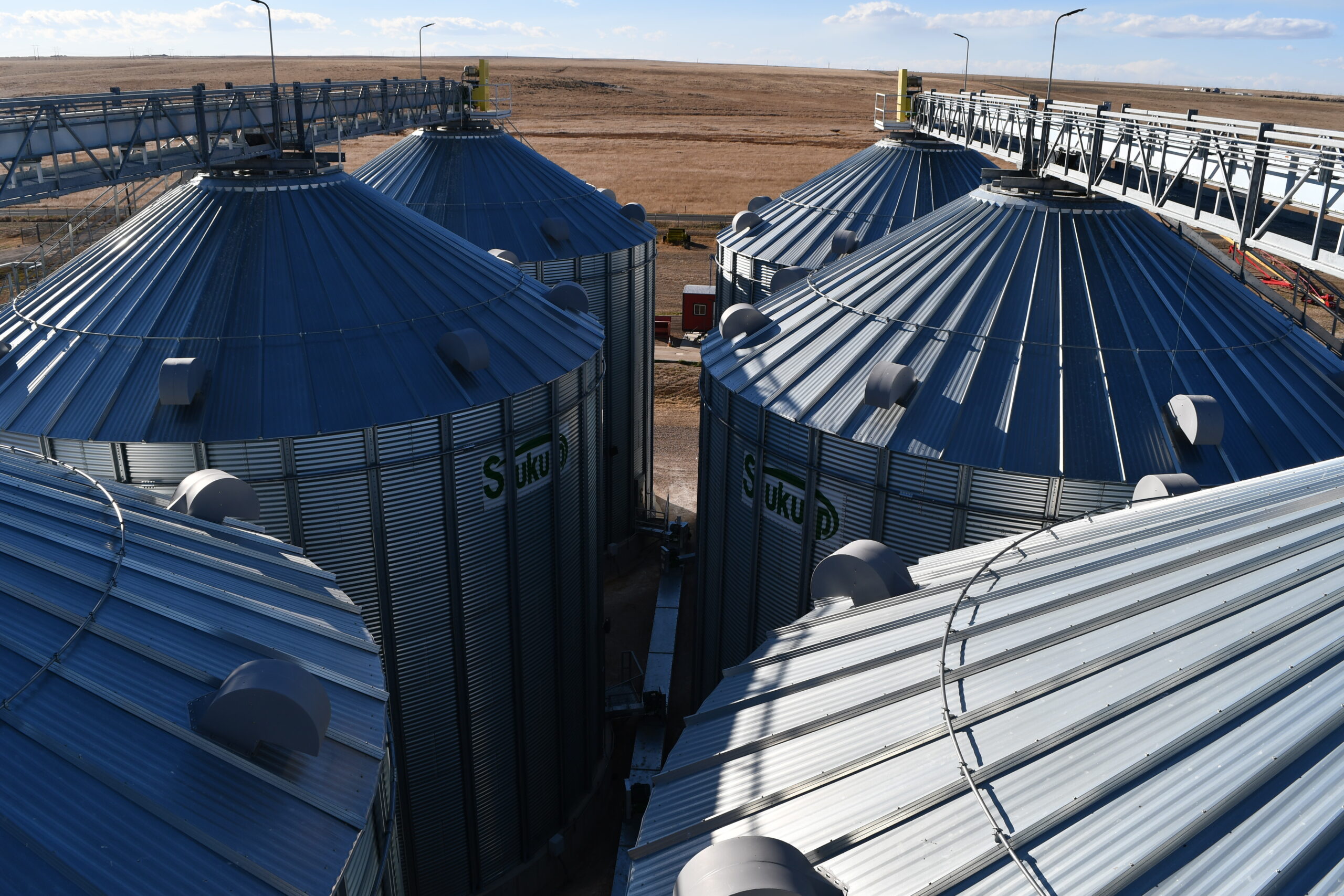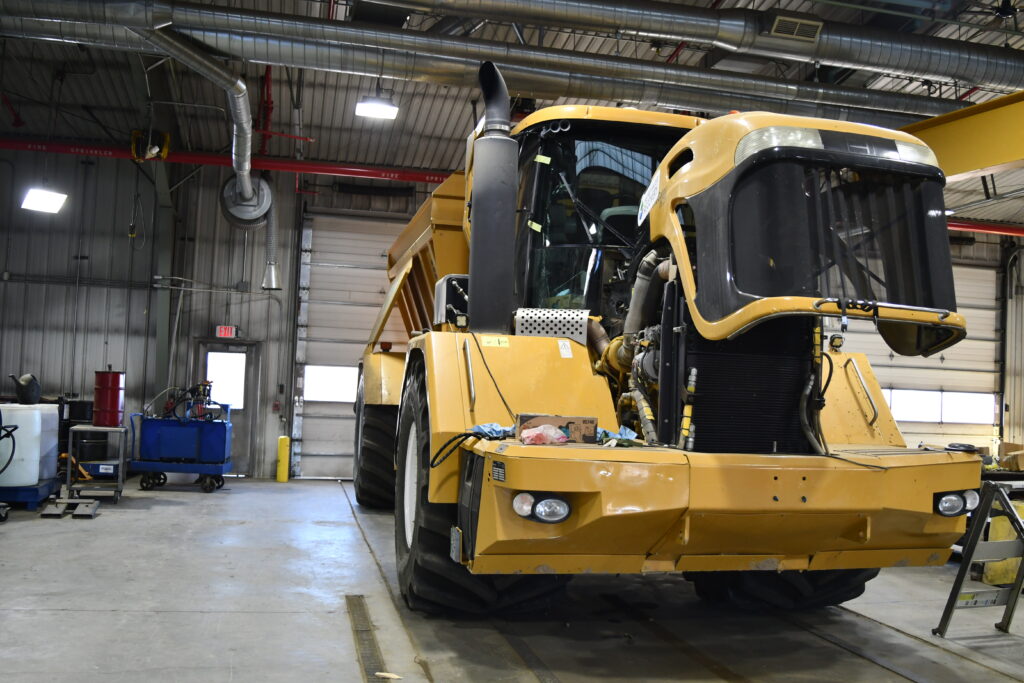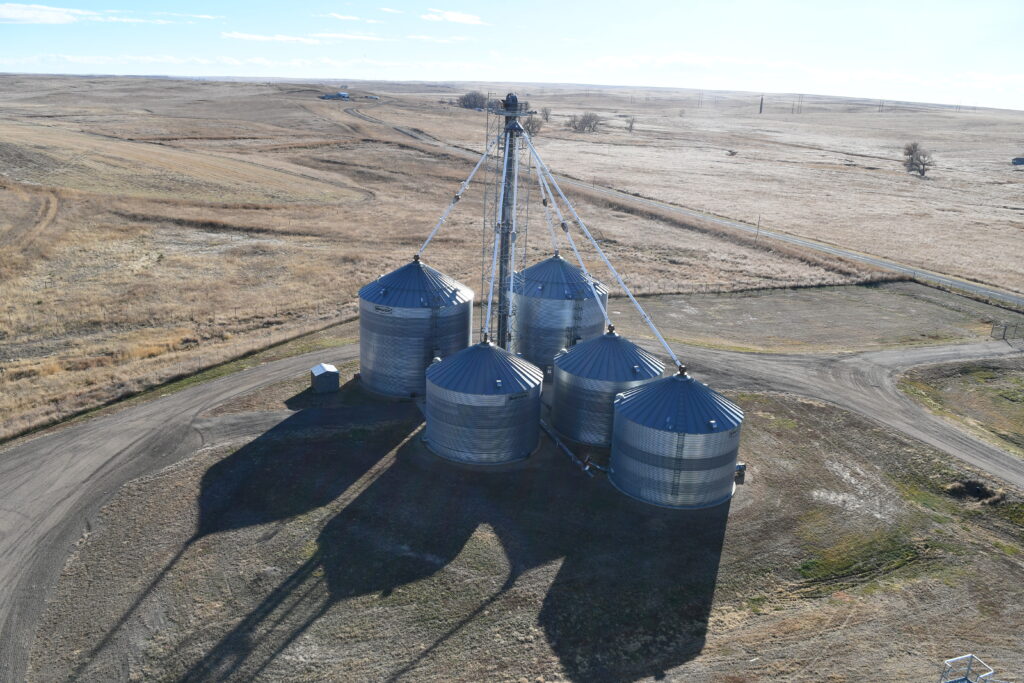
After the Harvest – A METROGRO Farm Special
Due to a very wet summer, the wheat harvest fell behind schedule across Colorado making for one of the latest wheat harvests in recorded history; truly an unprecedented year at our METROGRO Farm. Fortunately, as winter approaches, the crops have been harvested, and while the silos are filled with wheat, there’s still quite a bit of work to be done between the harvest and spring.
The Work Continues

“Farmers don’t stop in the winter” explains METROGRO Farm Administrator Jason Zimbelman. He continues, “we’re servicing our vehicles, we’re researching new practices for the winter, and watching the market prices daily for our wheat and Milo.” In addition, the maps are redrawn in anticipation for the new year.
A lot has changed since the summer. For starters, while the state had a record-breaking wet summer, the farm and much of Colorado are starting to enter drought conditions as autumn winds down. With the winter comes erosion, drought, snow, and strong winds, which can create a new set of challenges to face. And with nearly 100 miles of gravel roads, the erosion on the roads alone keeps maintenance on the farm a routine task.
Testing, Sampling and Applying
Another responsibility of the METROGRO Farm crew is to test soil samples after the harvest. Our team is required to take soil samples 2-to-3 feet under the surface from every field our biosolids have been applied for testing. With 28,000 acres of fields on the METROGRO farm alone, plus private farms in Weld, Adams, Arapahoe, Morgan, and Elbert counties; there’s a lot of fields to be sampled.

Land Application Coordinator Dan Shockman explains, “our Class B biosolids are regulated so we have to do our part and take samples.” He says that the number of soil samples will vary between 6-18 samples per field depending on acreage. The samples are then sent to Utah State University where they are analyzed so that application rates can be calculated. The tests calculate nitrogen, soil organic matter content, PH, and soil phosphorus content.
Biosolid deliveries don’t stop either. “The flow never stops at our treatment plants, so we don’t stop,” states Zimbelman. Tons of biosolids are brought to the METROGRO Farm each day, and by the end of September 2023, 2,449 loads have been delivered to the farm.
“The operators have an incredible safety record. They drive these loads in heavy traffic, in various conditions, and safely and securely deliver the biosolids to us and the other farms,” said Zimbelman. He adds, “you also have Metro’s Fleet Maintenance team that goes above and beyond to keep our trucks loaded and running. Everyone collaboratively works together to keep the operation running smooth.”
While the wheat has only been recently harvested, next year’s round is already planted. For it to thrive, winter wheat requires a freeze period to trigger a reproductive stage and then in the spring, the new crop will begin to grow. Until then, the last round of harvested wheat will be stored in our silos while the markets are watched. When a favorable price happens, the wheat can be sold at the farm’s discretion.
With the Palmer Divide’s knack for harsh winds and snow, it’s safe to say the METROGRO crew will stay busy. “It’s a tough world out here,” states Zimbelman. A world that they successfully adapt to with each change in the season, and for that we’re thankful.
